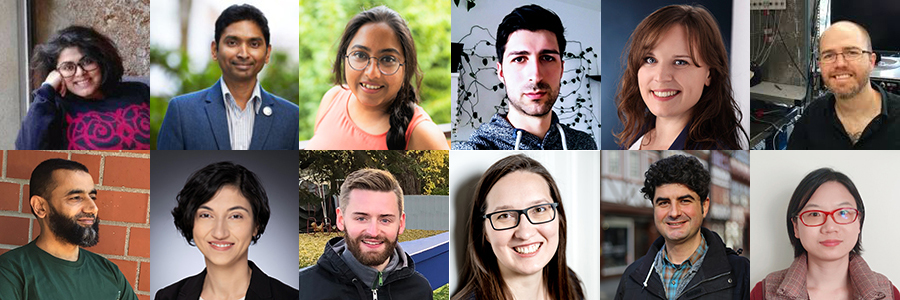Göttingen Campus Postdoc Committee
In summer 2017 a group of postdoctoral researchers from across the Göttingen Campus initiated the formation of the Göttingen Campus Postdoc Network. The founding members (James Daniel, Rituparnu Chakrabarti and Vinodh Ilangovan) wanted to set up a network in which postdocs can easily exchange information and views, and represent their interests more strongly. If you want to know more or are interested to join please contact us at the Campus Office, or one of the committee members.
Help us to make the GC Postdoc Network better known: download and distribute our poster.
CALL FOR NEW MEMBERS FOR THE GC POSTDOC COMMITTEE
Is your voice represented? If not, then why not apply?
Are you part of the Göttingen Campus Postdoc Network and community and do you meet our definition of a Postdoc? Then we are looking for your ideas, input, and energy to make the Göttingen Campus a better place for Postdocs. The deadline for applications is 31 March 2026.
As a committee member, you will benefit from:
• directly influencing the events and activities of the GC Postdoc Network
• meeting postdocs from across the Campus
• getting experience in committee work
• gaining a better understanding of how large organisations work
• opportunities to be more involved with central administration, the Presidential Office and senior staff
• acquiring transferable skills which are sought by many employers and can go on your CV
The main commitment is contributing ideas at our friendly meeting once a month. Meetings are in English, last approximately one hour, and are usually conducted via zoom. There is also attendance when possible at events (eg Postdoc Socials or Postdoc Support and Information Fairs, meetings with Senior Staff) and to lead on initiatives that interest you.
The GC Postdoc Committee’s mission:
• strives to ensure that the GC Postdoc community is valued, understood and that its voice is heard;
• supports, serves, and enhances the experience of the GC Postdoc community by providing an inclusive and overarching network across the GC and beyond;
• champions equality, diversity, and interdisciplinarity at every opportunity
• represents the needs and views of early career researchers to the University and its administration
You can see more about what the Network does here, the current membership is here and the terms of reference are here.
We welcome all applications and are keen to increase the diversity (including geographical location across the Campus, variety of disciplines, backgrounds and origins) to enhance the representativeness of the committee. We aim for balanced and broad representation of Postdocs in the committee and all genders are welcome.
The committee particularly encourages postdocs from any area or viewpoint that you (the GC Postdoc Network) consider is currently under-represented. From our perspective, Postdocs from any of the following areas would help balance our representation: Postdocs on visiting research fellowships (eg Humboldt or EMBO), Humanities, Social Sciences, Business and Economics, Maths, DPZ, MPIs and Research Centres across GC.
The application process is quick and easy: simply send a short CV and an email briefly explaining why you would like to join the Committee and what you would like to contribute to Melissa Sollich, the Postdoc Coordinator. This will be considered by the committee to ensure a good fit. Contact any of the current committee members for a chat or meet us at the upcoming social events to find out more.
We use the term ‘Postdoc’ in the broad sense of ‘early career researcher’ – a doctorate holder who conducts professional research with a time-limited contract or fellowship. If you fit this definition, even if you do not usually see yourself as a Postdoc, feel free to apply! We are looking for diverse perspectives.
Please contact the Postdoc Coordinator if you would like to discuss how this would work.
Linh Dang
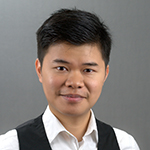
Linh Dang specialises in computer science with a passion for machine learning methods and their applications to Bioinformatics. His PhD research at the University of Göttingen focused on applying supervised machine learning to study protein’s properties such as DNA-binding sites or protein-protein interaction sites. Additionally, he is also interested in graph-based inferences to investigate how protein’s conformations change. In his free time, he likes watching Ted talks and science shows. His hobby is mountain hiking.
Stefanie Lenk
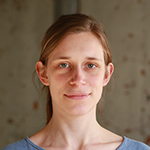
Stefanie is an art historian working on late antique and medieval religious art. She is a researcher and lecturer at the Art History Department of the University of Göttingen. At the moment, Stefanie’s research focus is on theological reflections on images at times of heresy. She also works on the collecting of religious material culture in 19th and 20th century museums and universities. Stefanie received her DPhil at the University of Oxford in 2019, where she wrote a dissertation on the subject of baptismal art and identity construction in the late antique Western Mediterranean. In the book, she investigates the surprising practice of 5th and 6th century Christian communities to baptize in spaces in which Roman pre-Christian visual and material culture was presented as completely Christian. Until 2018, Stefanie worked as a curator at the British Museum. During this time, she was the lead-curator of the exhibition Imagining the Divine. Art and the Rise of World Religions (Ashmolean Museum, Oxford, 10/2017-2/2018) that showed parallels, differences and interconnections in the development of early Buddhist, Christian, Hindu, Islamic, and Jewish imagery in the first millennium. Before coming to Göttingen, she worked as a postdoctoral researcher at the Art History department of the University of Bern, and spent some time as a fellow at the RomanIslam Center of the University of Hamburg.
Mark Bates
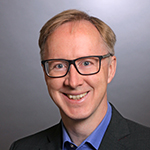
Mark Bates is a bio-physicist working in the Department of Optical Nanoscopy at the Institute for Nanophotonics, Göttingen (IFNANO). Mark's research area is super-resolution fluorescence microscopy, with a particular focus on the use of optical microscopes to resolve the nano-scale architecture of protein complexes. Originally from Canada, Mark earned his doctorate in Applied Physics at Harvard University (USA) before moving to Göttingen to work at the Max Planck Institute for Biophysical Chemistry, and later at the IFNANO. Mark was an EMBO Postdoctoral fellow, and his research was awarded the 2010 GE & Science Prize for young life scientists, and the Method of the Year (2008) from Nature Methods. When he’s not in the lab, Mark is a travel and hiking enthusiast, and enjoys winter sports such as skiing, skating, and curling.
Jimena Davila Gallesio
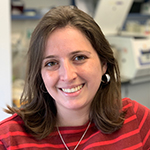
Jimena Davila Gallesio is a molecular biologist interested in RNA life. In 2019 she obtained her PhD degree from the University of Göttingen for her work studying RNA helicases and ribosome biogenesis. Currently she works as a postdoc at the Department of Molecular Biology of the University Medical CenterGöttingen (UMG). As a postdoc she stepped a bit away from the lab bench: she is mainly responsible for lab management, student supervision and teaching. In this role, but also as a member of the Postdoc Committee, she takes the chance to assist colleagues and peers in their everyday work. She puts special effort in creating and maintaining healthy and productive work environments.
When she is not in the lab, she enjoys meeting with friends for coffee, reading and knitting colorful things.
Christine Mau
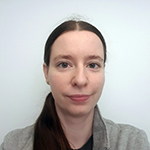
Christine Mau is a developmental biologist working in the Department of Evolutionary Developmental Genetics at the Göttingen Center for Molecular Biology (GZMB). She did her PhD at the Friedrich-Alexander-University Erlangen-Nürnberg on the topic ‘Cis-regulation of Segmentation Genes in Insects’ and obtained her degree in 2022. Afterwards, she conducted an eight-month research stay as postdoctoral fellow at the University of Pennsylvania in Philadelphia (USA). In October 2023, she started as a postdoctoral researcher at the University of Göttingen studying brain development and evolution in insects. Her research focuses on the analysis of the evolution of neuronal cell types at the single cell level. During her time off, she enjoys nature, cooking, and traveling.
Anas Emad
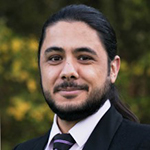
Anas Emad is a micrometeorologist in the Bioclimatology group at the Faculty of Forest Sciences and Forest Ecology. His work focuses on the surface-atmosphere exchanges of stable isotopes and other atmospheric constituents, aiming to deepen our understanding of biosphere-atmosphere interactions. Originally from Syria, where he earned his engineering degree, Anas completed his PhD (Dr. rer. nat.) at the University of Göttingen. He spent two years as a postdoctoral researcher at the Physikalisch-Technische Bundesanstalt (PTB), developing instruments and metrological methods for measuring stable isotopes of green house gases using optical techniques. Anas returned to Göttingen to join the ISO-SCALE project, which is dedicated to understanding the water cycle through stable water isotopes. In his free time, Anas enjoys cooking, photography, and exploring nature.
Layla Engelhardt
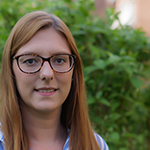
Layla Engelhardt is an agriculture and food scientist interested in post-harvest processes in plant products. In the division of Quality and Sensory of Plant Products she started as a PhD student in 2019 with a focus on “Thermal processing and storage effects on antioxidant plant compounds and their interaction in model experiments and plant matrices” and since 2023 she has continued her research as a postdoc with focus on interactions of phenolic compounds within different carbohydrate-rich food matrices.
Outside of work, she likes to be in nature hiking, enjoying life with a good book, or exploring foreign countries and their cultures.
Komal Bhattacharyya
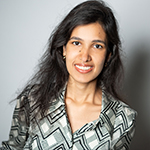
Komal Bhattacharyya is a theoretical biophysicist. She uses theoretical and computational tools to understand and explain different Physical properties of biological systems. Currently, she is working in the institute for dynamic complex Systems in the physics faculty of Gottingen University on understanding the mechanical properties of cell cytoskeleton. She did her PhD in biophysics from the Max Plack Institute of Dynamic and Self-organisation, Gottingen, after completing her master's in physics from India.
She is also passionate about science communication and hopes to see an increased diversity in academia. She wants to make sure academia is a friendly and welcoming place for everyone.
In her free time, she loves to cook and play board games with her friends, reading, dancing and exploring new cities and cultures.
Madhura Ketkar
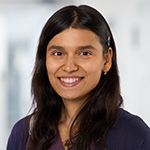
Madhura Ketkar explores how the tiny brains of fruit flies take courtship-related decisions. She is based at the European Neuroscience Institute (ENI), located in the north campus. Prior to this postdoc project, Madhura completed her MSc and PhD as a student of the International Max Planck Research School (IMPRS) for Neurosciences, Göttingen. Part of her PhD research was conducted at the Johannes Gutenberg University of Mainz.
While Madhura is familiar with Göttingen, she is new to the GC Postdoc Network. As a first step, she plans to improve the visibility of the GC Postdoc Network's events, so that every postdoc who could benefit from them will be aware of them. In her free time, Madhura goes with the flow - wander in nature if the weather permits; get cozy with board games or play Indian flute otherwise.
Michela Audisio
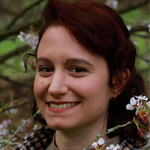
Michela Audisio did her PhD at the Faculty of Forest Science and Forest Ecology at University of Göttingen about the role of mycorrhizal fungi in the nutritional physiology of trees, within the framework of the progect “EnriCo – Enrichment of European beech forests with conifers” (RTG 2300). She is currently working as a postdoc in the same project, where she uses a multi-disciplinary approach to synthetize the data gathered by the different sub-projects of the RTG. In detail, the main research foci are the impact of climate change, in particular drought, on ecosystem functionality in pure and mixed forests, and the responses of biodiversity to forest composition at different levels. Her expertise includes biodiversity conservation, molecular biology, tree physiology, mycorrhizal fungi ecology, forest ecology, teaching and supervision. Nature is her greatest passion, she loves to be surrounded by plants, not only in the forest but also in her office and at home. Outside work, she likes Salsa dancing, traveling and spending time with friends.
Inna Safianova
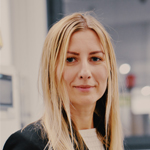
Inna Safianova is a dedicated researcher currently working at the Department of Inorganic Chemistry at Göttingen University. Her research focuses on developing catalysts for CO2 reduction, addressing one of the most pressing challenges in sustainable chemistry. Inna completed her PhD at Taras Shevchenko University of Kyiv, Ukraine, where she synthesized and investigated Metallacrown complexes for their potential applications. After her doctoral studies, she spent two years as a postdoctoral researcher at the University of Szeged, concentrating on the solution chemical characterization of hydroxamate complexes.Throughout her academic journey, Inna has built a broad network through numerous internships and collaborations, consistently demonstrating her eagerness to learn and expand her expertise. Outside of her research, Inna enjoys spending time in nature, meeting new people, exploring different cultures, participating in sports and traveling.
HYOJIN KIM
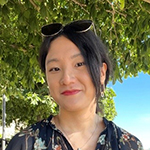
Hyojin Kim (Jin) is a neuroscientist working at the Göttingen Campus Institute for Dynamics of Biological Networks (CIDBN) and a guest researcher at the Max Planck Institute for Dynamics and Self-Organization (MPI-DS). Her research focuses on molecular dynamics to investigate the evolutionary origins of brains, using ctenophores (comb jellies) as a model, in collaboration with experimentalists at the Michael Sars Centre for Marine Biology at the University of Bergen, Norway.
Before coming to Göttingen, she completed a joint MSc program at the University of Zürich and ETH Zürich, followed by a PhD at the Technical University of Denmark (DTU). During this time, she developed a broad skill-set in neuroinformatics, neuroimaging techniques, and behavioral research.
Through these international and multidisciplinary experiences, she became interested in science communication. She believes that many fascinating research topics could benefit from greater public exposure and, in turn, contribute more meaningfully to society. For this, in March 2025, she initiated a science communication network. Outside of work, she enjoys crocheting cute animals and filling her home with plants.
EDWIN SCHENKEL
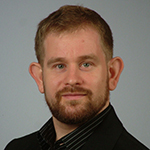
Edwin Schenkel is a postdoctoral researcher at the Department of Clinical Psychology and Experimental Psychopathology and a licensed Psychological Psychotherapist (Cognitive Behavioral Therapy) at the Therapie—and Beratungszentrum (TBZ) of the Georg-Elias-Mueller-Institute of Psychology, University of Göttingen. He earned his PhD from Radboud University Nijmegen, The Netherlands, in 2025. In his PhD, he examined the clinical effectiveness of a computerized cognitive training, aiming to modify automatic approach-avoidance tendencies, given as an add-on to regular inpatient treatment for alcohol use disorder, with the overarching aim to support relapse prevention after treatment. In his postdoc, Edwin continues to measure and modify cognitive biases, focusing on interpretational processing biases in emotional psychopathology. Next to this, he works as a psychotherapist at the TBZ. Outside work, he likes to travel, explore cultures, bouldering, enjoy good food and coffee, movies, play the piano, and read.
YEHAN BIAN
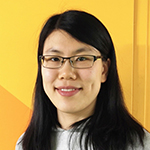
Yehan Bian is a biologist working at the University Medical Center Göttingen (UMG). She has a broad interest in endocrinology, neuroscience and developmental biology. Her current research focuses on the hormone regulation mechanisms in the pituitary gland and their contribution to hormone disorders. She obtained her PhD at the RWTH Aachen University, where she studied mechanisms of motor neuron heterogeneity.
Beyond her research, Yehan loves food, nature and scuba diving.
JULIAN BERGAU
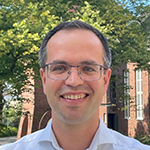
Julian Bergau is a Postdoc at the Faculty of Theology specializing in New Testament studies, and an ordained pastor of the Lutheran church. Analysing and interpreting texts is his passion that he likes to combine with a keen interest in interdisciplinary dialogue and perspectives – and he finds the Göttingen campus an excellent place to do so! Throughout the year, he enjoys hiking in the nearby forests, and is always ready to engage in a football match (or in lively discussions around that wonderful game!).
KARTIKAY SHARMA
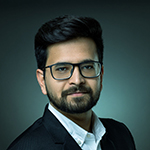
Kartikay Sharma is a structural biologist specializing in the structural determination of proteins, their complexes, and protein aggregates using cryo-electron microscopy (cryo-EM). He got his PhD from Ulm University in Germany, where his research focused on the cryo-EM structural analysis of protein aggregates, amyloid fibrils, associated with various neurodegenerative diseases. Currently, he is a postdoctoral researcher at the Max Planck Institute for Multidisciplinary Sciences in Göttingen, where he investigates the structural mechanisms underlying the initiation of autophagy.
Outside the lab, Kartikay enjoys listening to music and singing, traveling, hiking, and playing both video and board games with friends.
VALERIO GENTILE
Valerio Gentile is an archaeologist specializing in the Bronze Age and Iron Age of Europe, with an emphasis on material culture studies. His main interest is armed conflict in pre-state societies, exploring its practical, ideological, and social implications. He also studies metalwork circulation and deposition during the Bronze Age. He is also actively involved in the refinement of microscopic analysis and experimental archaeology approaches to the study of metal artifacts. Currently, Valerio is researching the patterns of use and deposition of Bronze Age weapons in Germany and Central Europe at the Seminar für Ur- und Frühgeschichte.
